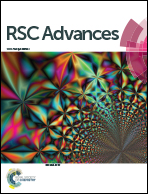Der Kooperative Bibliotheksverbund Berlin-Brandenburg (KOBV) veröffentlicht aus Anlass der International Open Access Week fünf Sonderausgaben des KOBV-Newsletters über ausgewählte Aspekte des Open Access:
– Open-Access-Transformation (Ausgabe 1)
– Der Grüne Weg (Ausgabe 2)
– Rechtsfragen und Beratung (Ausgabe 3)
– Der Goldene Weg (Ausgabe 4)
– Open-Access-Strategien (Ausgabe 5)

 The RSC journal
The RSC journal